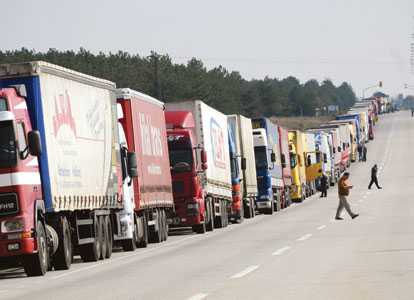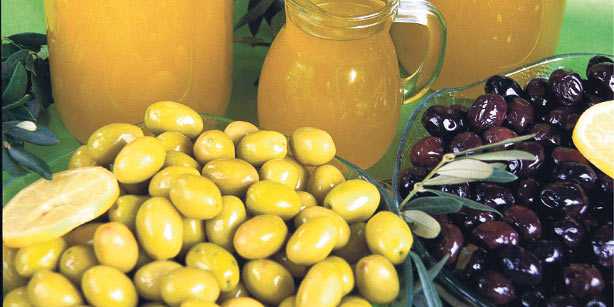EDIRNE – Anatolia News Agency

Turkey’s trade to Europe has slowed down due to fewer border gate officials working on the Bulgarian border gate as a long queue of trucks spends days to pass the border from Turkey to European markets.
Nearly 700 trucks formed a queue of 7 km on Turkey’s Bulgarian border, according to border gate officials, Anatolia news agency reported. Bulgarian officials decreased the number of shifts on the Bulgarian border gate, which slowed traffic between Turkey and Europe, said Turkish border gate officials speaking on the condition of anonymity.
“We waited for almost two days in Halkalı district of Istanbul and now have been waiting for another two days by the border gate,” said Mustafa Güdücü, a Turkish truck driver. Transporting automotive spare parts from Turkey’s northern province of Düzce to Germany, Güdücü said, “Due to traffic juncture it took us 30 hours from Istanbul to the border gate.”
”I have not slept for nearly 24 hours and all our desire is to pass the border gate,” truck driver Ali Çelikbaş said.
Fazlı Şisa, the driver of a loaded truck, said: “We are celebrating a sad Feast of the Sacrifice as we are not with our families, but waiting here for days.”
Long waits in border gate increase transportation costs
Long queues at the border gates of the country increased transportation costs and caused delays in the deliveries of export materials, Engin Özmen, chairman of the Association of International Transporters (UND) said yesterday.
In Halkalı and Erenköy customs houses, Turkish exporters are having serious problems, Özmen said. “Long queues of trucks and cars waiting for many hours increase transportation costs and prevent products from reaching destinations on time.”
Özmen said the Turkish government should regulate the borders in a more efficient way as the recent cases demonstrate that two customs houses in Istanbul have already exceeded their capacities. Lack of efficiency in customs houses causes slower deliveries of orders, Özmen said.
via Trade to Europe delays due to border gate queue – Hurriyet Daily News.





